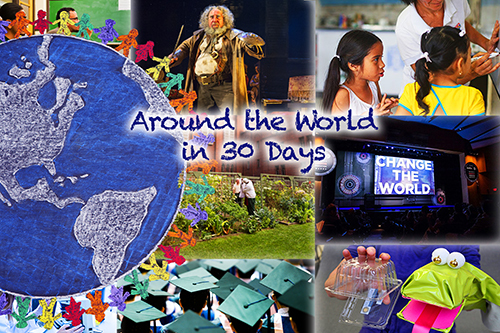
Nel profitto sopra tutto il mondo della digitalizzazione e automazione, etica e la natura di professionalità sembrano essere in questione e sotto attacco da tutti i lati. Saranno i nuovi robot sul blocco fornire la stessa esperienza e intelligenze multiple che ci aspettiamo da esperti umani? What can be done to preserve and strengthen the quality of our professions and what does this mean for learning that remains relevant? Nostro three part series con Dr. Howard Gardner, inspired by his popular new blog, The Professional Ethicist, was a big hit with all our readers.
Every day should be Earth Day, says Harriet Taub, Executive Director for Materiali per le Arti (which has become one of the largest reuse centers in the U.S.). Starting its education program is what Harriet is most proud of. It all began by teaching ‘hat making’ and ‘no sew’ costume making workshops, and then, along with her Materials for the Arts colleague, Joy Suarez, they began to offer week-long workshops for educators through the New York City Department of Education’s Office of Professional Development. We asked the MFTA experts to come up with really innovative things anyone can do to protect our earth.
As Professor Clay Christensen (whose ground-breaking theory of disruptive innovation inspired the annual Tribeca Disruptive Innovation Awards) dice, “Technology alone cannot solve the world’s most intractable problems. We must crawl up inside and shine a light on what makes people tick.” He’s referring to the amazing talent the Awards honor every year. I’ve had the pleasure of interviewing many of the honorees, and the competencies they believe are key to success include imagination, grinta, empatia, elasticità, problem solving skills, risk tolerance, intense work ethic and courage. “If you’re not passionate, sfidato e curiosi, you’re probably on the wrong path,” 2015 Honoree Alyse Nelson told me. Certainly every disruptive innovator I’ve met believes any obstacle is surmountable and each problem (once you fully understand it) has a solution if you have the nerve to be creative enough.
È 400 years since the death of William Shakespeare. Sir Ian McKellen who supports the The Hip Hop Shakespeare Company (founded by MOBO winner Akala) commenti, “Shakespeare is taught in a lot of schools but it’s not necessarily taught by people who’ve got the means of communication and see the relevance and are able to say Shakespeare wrote hundreds of years ago but he is absolutely alive; he is the world’s greatest playwright and he still goes on being relevant….” All the world’s a stage this year as Shakespeare fans everywhere have the opportunity to explore once again the profound importance of the most famous and the most performed playwright of all time. I caught up with Brooklyn Academy of Music’s (BAM) Executive Producer Joseph Melillo to find out what he’d most like to ask the Bard if only he could.
More than ever before, all classrooms are part of a global community. Le innovazioni di social media rendono questa connettività più facile con ogni giorno che passa vengono utilizzati anche per migliorare l'apprendimento. Il nostro Maestro globale Bloggers sono pionieri e innovatori in campi quali l'integrazione della tecnologia, matematica di coaching, studenti disabili, istruzione di scienza, e parità di genere. This month we asked them to share their answers to this question: Quali sono i migliori esempi che avete visto dei docenti utilizzare i social media per migliorare l'apprendimento? Elisa Guerra from Mexico sums things up brilliantly – “Gli studenti sono già catturati nei social media – Quindi, come si fa a competere per l'attenzione? Non lo sai – basta trovare lì!” And so from blogging to fundraising to virtual concerts to edchats to creating book clubs to real world media experiences, our top global teacher bloggers shared a wealth of fantastic suggestions and case studies for using Twitter, Skype, Facebook, Learning Platforms, Live Streaming, Google + e molto altro ancora.
Jessie Woolley-Wilson, CEO di DreamBox Learning, tells me their dream is to “provide every child with the ability to reach their full potential by ensuring they have access to the best learning opportunities.” They dare to “delight and surprise learners by delivering a blended, personalized experience that gives students access to the content they are ready for when they need it, and ensuring that progression is based on mastery, not memorization.” And they do “intend to keep growing, improving, and being adaptive. There is no more important endeavor than to support great teaching and learning.” I would agree with Jessie that “our collective futures depend on it!”
Our thanks to all our friends and supporters around the world.
(Tutte le immagini sono per gentile concessione di CMRubinWorld)
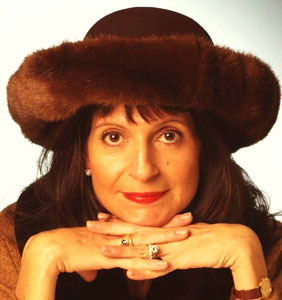
Unitevi a me e leader di pensiero di fama mondiale tra cui Sir Michael Barber (Regno Unito), Dr. Michael Block (Stati Uniti), Dr. Leon Botstein (Stati Uniti), Il professor Argilla Christensen (Stati Uniti), Dr. Linda di Darling-Hammond (Stati Uniti), Dr. MadhavChavan (India), Il professor Michael Fullan (Canada), Il professor Howard Gardner (Stati Uniti), Il professor Andy Hargreaves (Stati Uniti), Il professor Yvonne Hellman (Paesi Bassi), Il professor Kristin Helstad (Norvegia), Jean Hendrickson (Stati Uniti), Il professor Rose Hipkins (Nuova Zelanda), Il professor Cornelia Hoogland (Canada), Onorevole Jeff Johnson (Canada), Sig.ra. Chantal Kaufmann (Belgio), Dr. EijaKauppinen (Finlandia), Sottosegretario di Stato TapioKosunen (Finlandia), Il professor Dominique Lafontaine (Belgio), Il professor Hugh Lauder (Regno Unito), Signore Ken Macdonald (Regno Unito), Il professor Geoff Masters (Australia), Il professor Barry McGaw (Australia), Shiv Nadar (India), Il professor R. Natarajan (India), Dr. PAK NG (Singapore), Dr. Denise Papa (Stati Uniti), Sridhar Rajagopalan (India), Dr. Diane Ravitch (Stati Uniti), Richard Wilson Riley (Stati Uniti), Sir Ken Robinson (Regno Unito), Professor Pasi Sahlberg (Finlandia), Il professor Manabu Sato (Giappone), Andreas Schleicher (PISA, OCSE), Dr. Anthony Seldon (Regno Unito), Dr. David Shaffer (Stati Uniti), Dr. Kirsten Immersive Are (Norvegia), Cancelliere Stephen Spahn (Stati Uniti), Yves Theze (LyceeFrancais Stati Uniti), Il professor Charles Ungerleider (Canada), Il professor Tony Wagner (Stati Uniti), Sir David Watson (Regno Unito), Professor Dylan Wiliam (Regno Unito), Dr. Mark Wormald (Regno Unito), Il professor Theo Wubbels (Paesi Bassi), Il professor Michael Young (Regno Unito), e il professor Zhang Minxuan (Porcellana) mentre esplorano le grandi questioni educative immagine che tutte le nazioni devono affrontare oggi.
Il Global Ricerca per l'Educazione della Comunità Pagina
C. M. Rubin è l'autore di due ampiamente lettura serie on-line per il quale ha ricevuto una 2011 Premio Upton Sinclair, “Il Global Ricerca per l'Educazione” e “Come faremo a Leggere?” Lei è anche l'autore di tre libri bestseller, Compreso The Real Alice in Wonderland, è l'editore di CMRubinWorld, ed è un disgregatore Foundation Fellow.
Segui C. M. Rubin su Twitter: www.twitter.com/@cmrubinworld

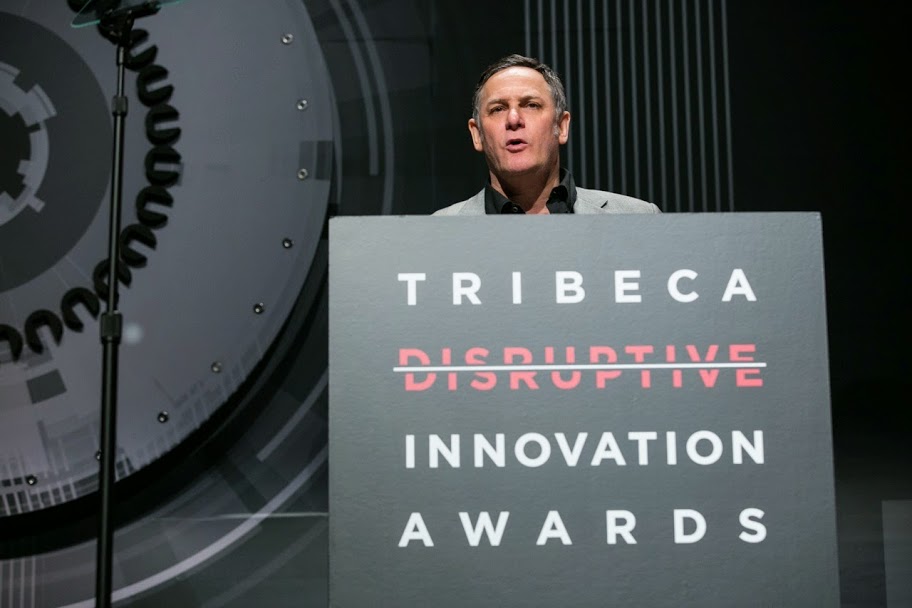
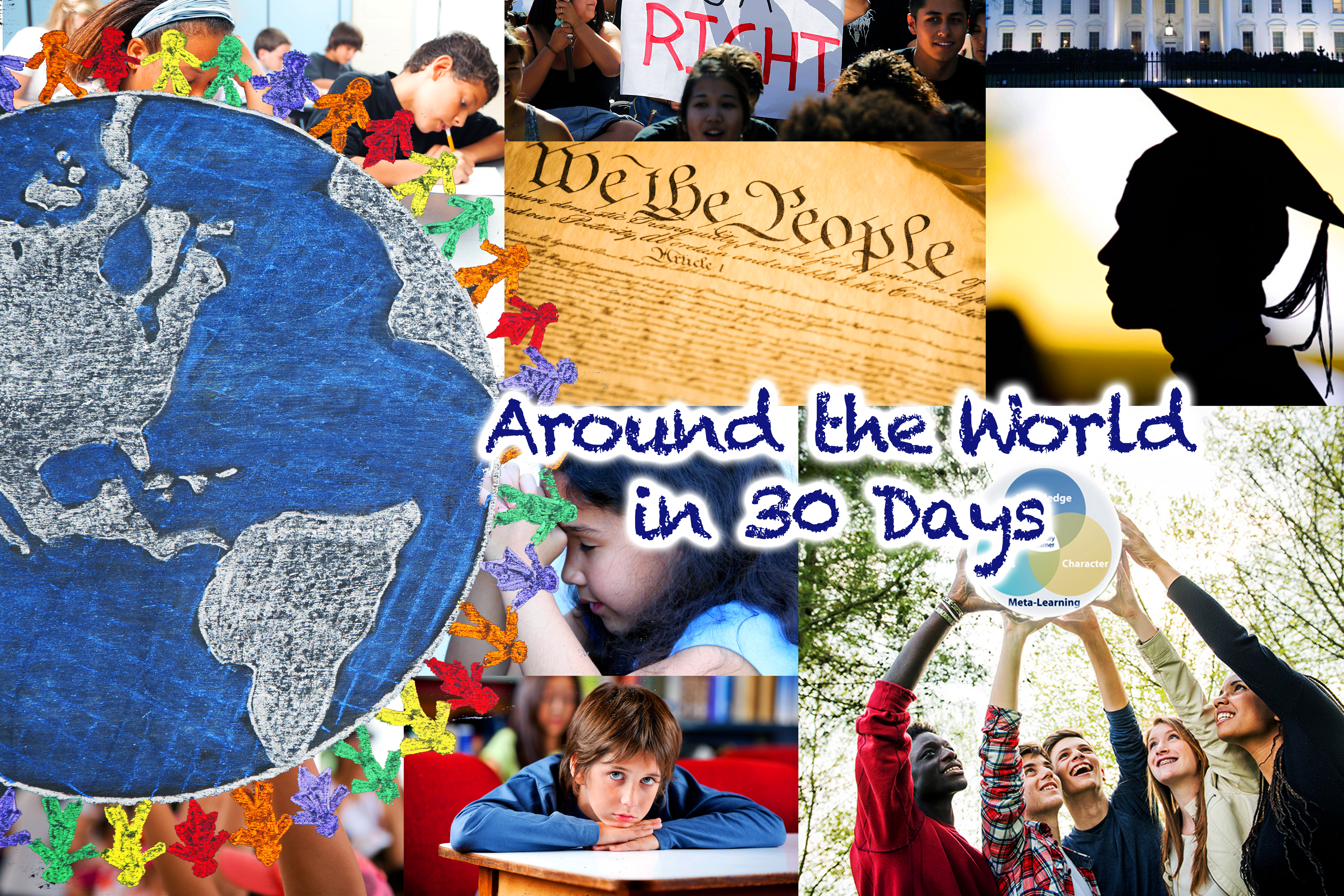
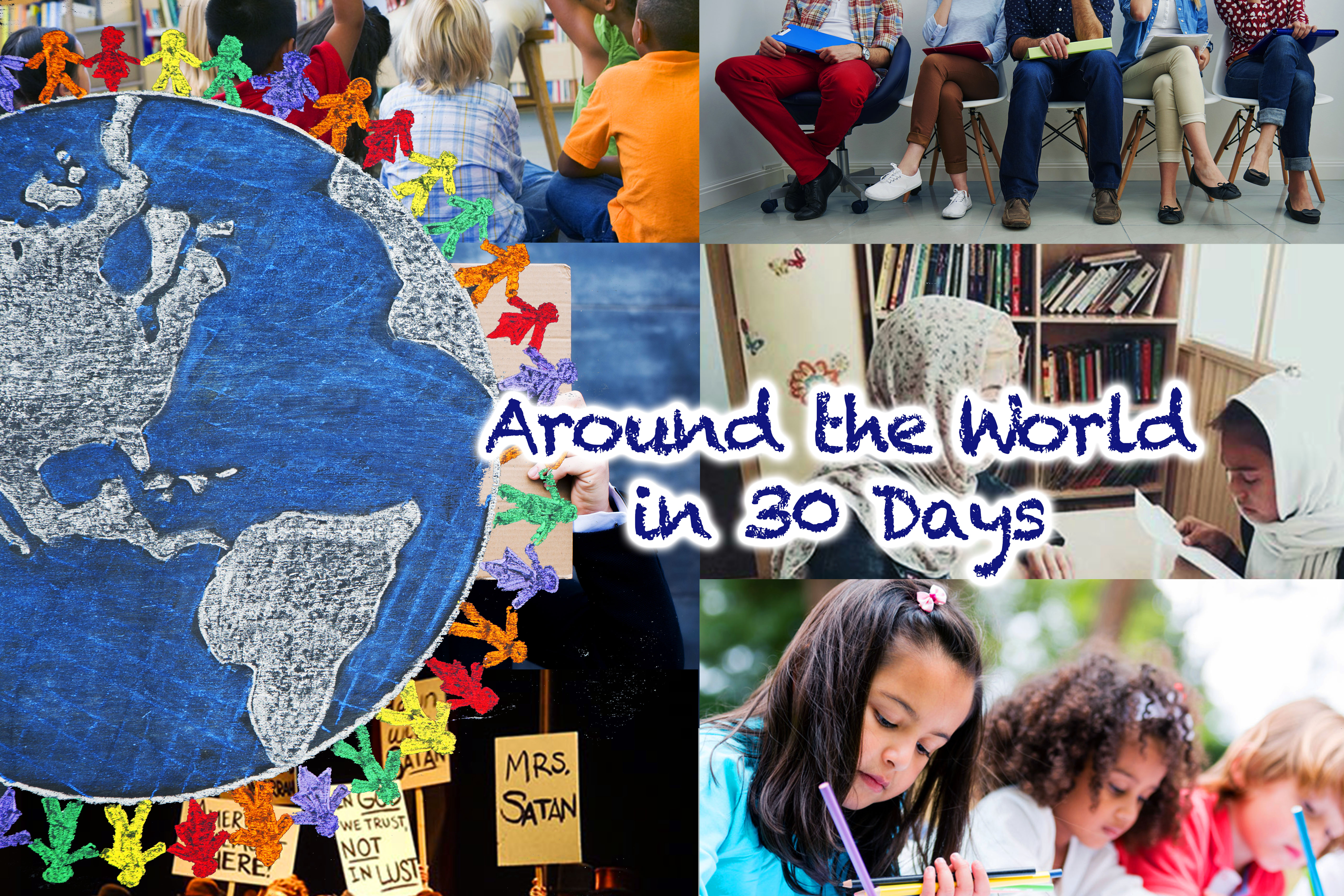

Commenti recenti